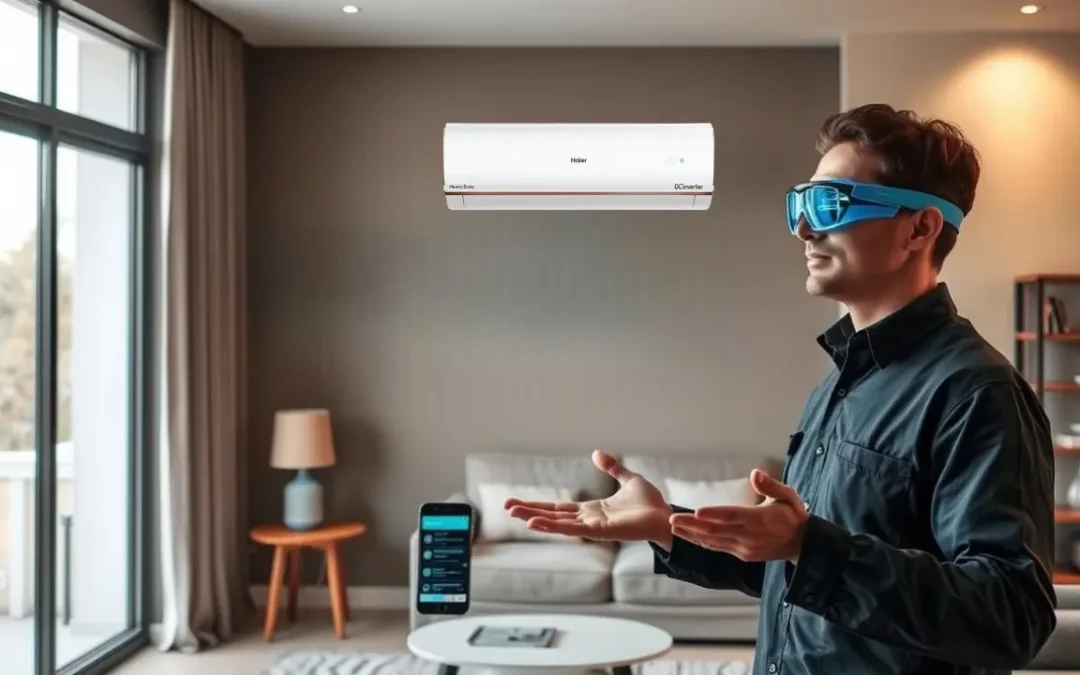In recent years, the concept of self-diagnosing HVAC units with AI has emerged as a revolutionary development in the realm of climate control. As the world increasingly embraces smart technology, the integration of artificial intelligence into heating, ventilation, and air conditioning (HVAC) systems is set to redefine how we manage indoor environments. This innovation not only enhances efficiency and reliability but also promises to significantly reduce maintenance costs and energy consumption.

Understanding Self-Diagnosing HVAC Systems
The primary function of self-diagnosing HVAC units is to utilize AI algorithms to continuously monitor system performance. These systems can identify potential issues before they escalate into major problems, thereby preventing costly breakdowns and ensuring uninterrupted comfort. By analyzing data from various sensors and components, AI can pinpoint anomalies and predict failures with remarkable accuracy.
AI’s Role in Predictive Maintenance
Predictive maintenance is a key advantage of AI integration in HVAC systems. Unlike traditional maintenance, which relies on scheduled checks, AI-driven systems identify maintenance needs based on real-time data. This proactive approach not only saves time and money but also extends the lifespan of HVAC equipment.
For further insights into how AI is reshaping HVAC maintenance, you can explore this comprehensive study.
Benefits of AI-Enhanced HVAC Systems
Energy Efficiency and Cost Savings
One of the most significant benefits of self-diagnosing HVAC units with AI is improved energy efficiency. By optimizing system performance and reducing unnecessary energy consumption, these units contribute to lower utility bills while minimizing environmental impact.
Additionally, the ability to predict and address issues before they lead to complete system failures can result in substantial cost savings. For more on how AI aids in HVAC efficiency, check out our article on intelligent HVAC load forecasting.
Enhanced Comfort and Reliability
AI-enabled HVAC systems offer enhanced comfort by maintaining optimal indoor conditions. With real-time adjustments based on environmental data, these systems ensure consistent temperature and air quality, adapting to changing conditions seamlessly.
AI Integration: The Future of HVAC
Smart Sensors and Data Collection
The integration of smart sensors is crucial for AI-driven HVAC systems. These sensors collect a vast array of data, including temperature, humidity, air quality, and system performance metrics. This data serves as the foundation for AI algorithms to make informed decisions.
Machine Learning and Continuous Improvement
Through machine learning, HVAC systems with AI continuously improve their performance. By analyzing historical data and learning from past experiences, these systems refine their algorithms, becoming more accurate in diagnosing issues and optimizing operations.
Challenges and Considerations
Data Privacy and Security
While AI offers numerous benefits, it also raises concerns about data privacy and security. To address these challenges, manufacturers and service providers must implement robust security measures to protect sensitive information collected by HVAC systems.
Implementation Costs
The initial cost of implementing AI in HVAC systems can be a barrier for some. However, the long-term savings in energy and maintenance costs often outweigh the upfront investment.
The Role of AI in HVAC Inspections
AI plays a pivotal role in HVAC inspections, providing detailed reports and recommendations. To learn more about how AI powers HVAC inspections, visit our page on AI-powered reports for HVAC inspections.
Conclusion
The integration of AI into HVAC systems represents a significant leap forward in climate control technology. Self-diagnosing HVAC units with AI offer unparalleled benefits, including energy efficiency, cost savings, enhanced comfort, and reliability. As the technology advances, the potential for even greater innovations in indoor environmental management becomes increasingly promising.

FAQ Section
What is a self-diagnosing HVAC unit?
A self-diagnosing HVAC unit is equipped with AI technology that allows it to monitor its own performance and detect potential issues before they become major problems.
How does AI improve HVAC system efficiency?
AI optimizes HVAC system performance by analyzing real-time data, predicting maintenance needs, and adjusting operations to reduce energy consumption.
Are AI-driven HVAC systems expensive to maintain?
While the initial implementation cost may be higher, AI-driven HVAC systems often lead to long-term savings in energy and maintenance costs, making them economically viable in the long run.
This article contains affiliate links. We may earn a commission at no extra cost to you.
